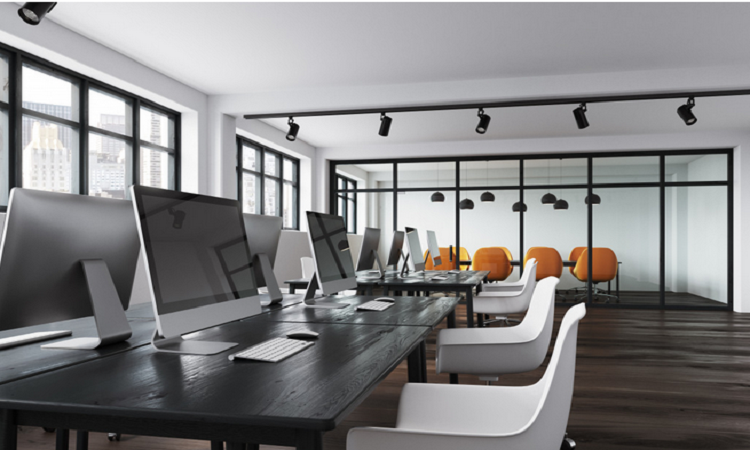Computers won’t work like they do
out of the box forever. You will find that, over time, your device will slow
down and become harder and harder to use. Whether you use it for work, school,
or leisure, it can be extremely frustrating when this begins to happen.
Sometimes laptops can be repaired, whereas other times they simply need
replacing; oftentimes, businesses and other professionals rely on professional
tech companies – the managed IT services London based businesses often rely on will include services to
replace and repair computers. However, if you’re on your own, it is good to
know why computers slow down, as well as some of the signs to tell you when you
should replace your computer.
Why Do Computers Slow Down?
There are a myriad reasons why
computers slow down. Once you know why computers’ performance degrades, it can
be easy to make changes to try and improve it, and then, if there really isn’t
anything that you can do, you know that you need to get a new device.
1. Internal Storage
Computers have internal storage
that if fulfilled by a hard drive – usually a hard disk drive, or a solid-state
drive. This is where all of your data is stored; for instance, your files and
documents, cache files, settings, etc. But the internal storage is also where
all of your apps, and your operating system is stored. The more empty your
internal storage is, the easier your computer will find it to boot up software
and have things running smoothly.As internal storage fills up, your PC’s
performance will start to slow down.
2. Bloatware & Old Data
Bloatware is a term for software
and applications which you don’t use, but which are taking up space on your
computer – so this ties in the with previous point; when your hard drive fills
up, your computer slows down. We often download and install software as and
when we need it, without thinking about our storage, and then forget about the
software. Even just by sitting on your PC, software uses up resources; the same
can be said about old data that you no longer need or use.
3. RAM
The RAM (or Random-access Memory)
is the hardware that is responsible for how quickly your computer runs
programs, and how many programs can be run at once. The more RAM your PC has,
the faster and more work it can handle; conversely, if you only have a little
bit of RAM, it will struggle with running multiple programs (or even just one
large program, such as a video editing application). As we mentioned before,
number of files and data on your device fills up; this also impacts how well
your RAM functions – so even if you add more RAM over time, it will always
begin slowing down eventually.
4. System Updates
Software usually receive patch
updates that enable them to operate more efficiently and securely. While it is
good to install patches and updates, it does mean more data stored on your
device. Again, this will slow down your PC’s performance.
5. Viruses
A virus is a piece of malicious
code, or a malicious program that can wreak havoc with your computer.
Sometimes, they can install themselves on your PC and lay dormant for a very
long time. There are lots of viruses whose only purpose is to impact the
performance of your PC, jamming up your system and slowing down your computer.
According to one company we spoke to, who provide outsourced
IT support London businesses rely on,
there is always a risk of your PC getting infected by a virus – so to minimize
that risk, it is important to install a good antivirus/antimalware software.
6. Hardware Issues
The hardware in your computer
needs to be working as intended for your PC to perform correctly. If hardware
gets damaged somehow – like if you drop your PC – then hardware components
might get damaged or displaced, which will impact the performance. An example
of this is with the hard drive, which contains a number of moving components
(unless it is a solid-state drive).
Signs to Look For
Now that you know some of the
reasons why computers can become slow over time, you should also know what
signs indicate that it is time to replace your PC. There may be ways in which
you can repair or upgrade your PC to improve performance, and other times when
it is simply too old to ever get that performance back.

1. Long Startup / Shutdown
Booting up your PC should not take
much more than a minute; and likewise, shutting down your PC shouldn’t take
long. If it is taking a while, that indicates that your PC isn’t executing the
necessary processes very well. This might be to do with the hard drive or the
CPU, and could mean it cannot support the software properly.
2. Poor Multitasking
As we mentioned earlier, your
random-access memory (RAM) enables your PC to multitask, and run multiple
programs at once. But, even if you add more RAM to your PC, it will eventually
get clogged up by data and slow down again, so there really is a cap on how
much your can improve your PC’s multitasking by upgrading RAM. At a certain
point, it is best to simply find a newer model of computer.
3. Loud Fan
The fan is what cools your PC
down. Your PC gets hot because the hardware, which running the various processes
needed for a computer to function, begin to heat up. A loud fan means it is
working overtime to cool down the hardware; and if your hardware’s temperature
is getting that high, it means it’s not handling processes very efficiently. If
your fan starts whirring almost as soon as your PC starts, that’s a sure fire
sign that you need to replace the machine.










